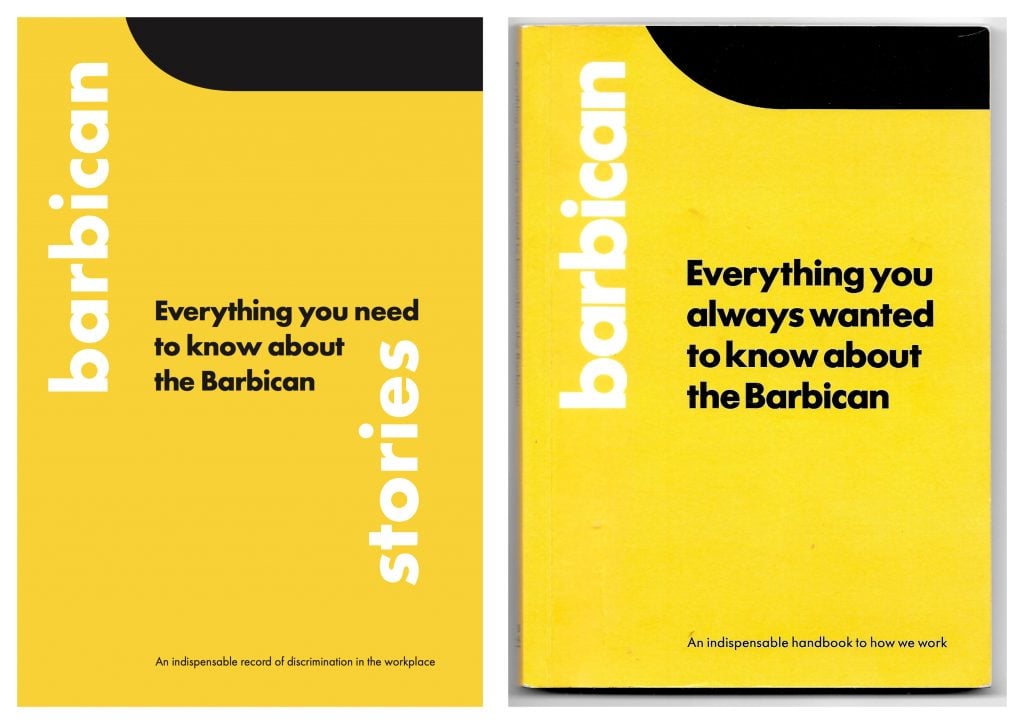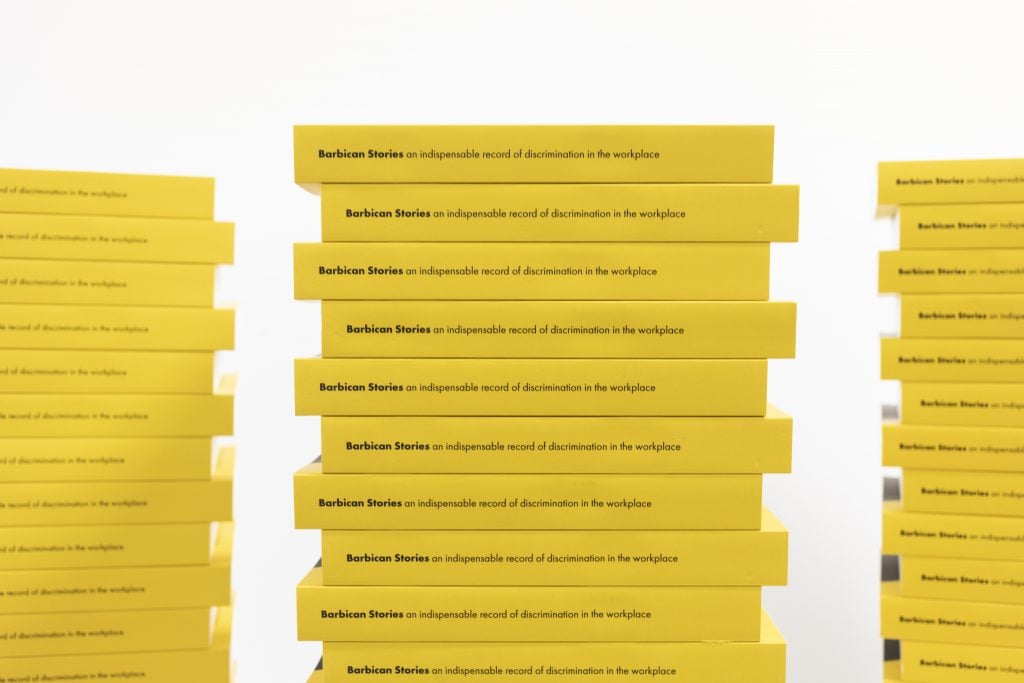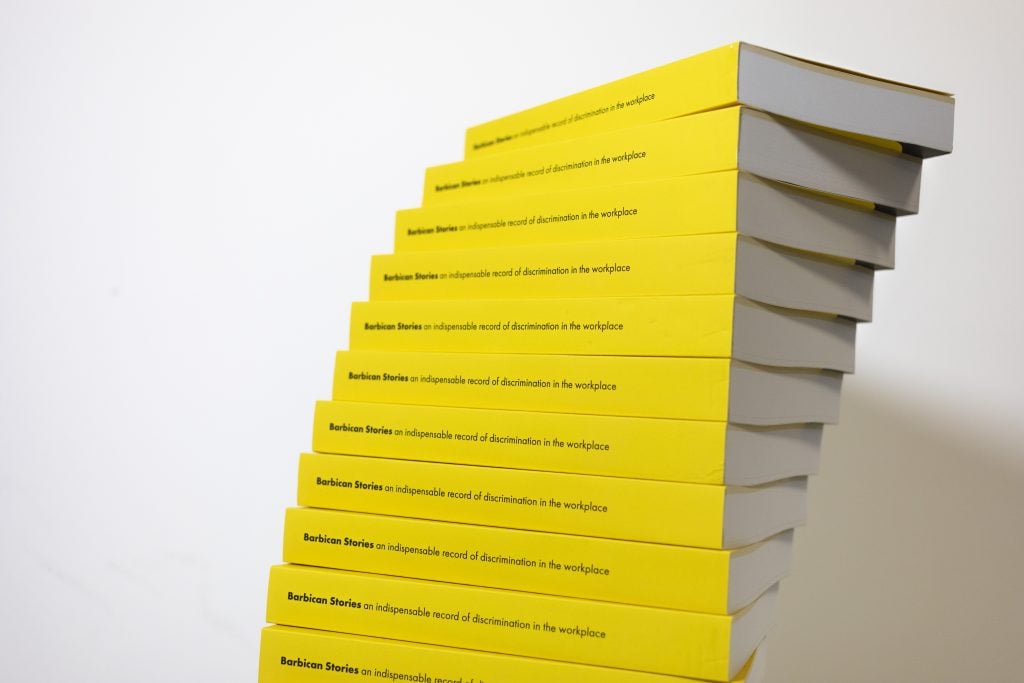Artists and collectives are pulling their programming from the Barbican Centre in London after a group of current and former staff released a dossier detailing an “inherently racist” working culture at the institution.
Titled “Barbican Stories,” the dossier was put together in the style of a handbook given to new staff to apprise them of “everything you always wanted to know about the Barbican.” It contains nearly 100 anonymous “first-hand and witnessed accounts of racism and discrimination” at the institution, which is the largest performing arts center in Europe, and includes an art gallery, theaters, cinemas, and a library.
Architectural designer and researcher Thandi Lowenson wrote on Twitter that she had withdrawn from a planned workshop after reading the “extensive and all too familiar accounts of institutional racism.” Meanwhile, the curatorial platform Culture Arts Society cancelled its scheduled programming there. “As a Black woman-led platform that is fully committed to equality and has a public presence premised on decolonial thought, we extend our sincerest solidarity to the workers who have shared their stories and those who have yet to,” it said in a statement.
The group behind the handbook, a collective of current and former Barbican employees, told Artnet News that they were motivated to create the manual after the institution’s “awful response” to the Black Lives Matter movement and the reckoning with systemic racism within institutions that began amid the George Floyd protests of 2020.

Courtesy Barbican Stories.
The book, which was funded by “white colleagues” in solidarity, includes accounts of racial abuse of staff from visitors, racist assumptions from other staff members not being taken seriously by management, and accounts of unequal employment terms between white and BIPOC colleagues.
The creators of “Barbican Stories” are calling for “radical change” at the institution beyond “cosmetic corporate exercises” such as equality, diversity, and inclusion training sessions.
A spokesperson for the Barbican told Artnet News that the institution was “shocked and saddened” by the allegations and would “immediately” launch an independent review.
“We want everyone’s voice to be listened to and respected,” the spokesperson said, and added that all staff will be able to contribute to this review. “We fully recognize the pain and hurt caused by these experiences. We are committed to pursuing the ongoing program of action which we have laid out to advance anti-racism in the organization, and to achieve necessary change.
They said it was “not appropriate” to respond to specific allegations before the official review.
The creators of the dossier were not happy with the institution’s response. “Barbican is launching an independent review into the ‘allegations’ not the ‘racism at the Barbican,’ which means we’re still at the question: ‘Is the Barbican racist,’ not ‘how can we make the Barbican anti-racist.’ What a waste of resources!”
The creators said that since the dossier was published on June 10, there has been no all-staff conversation addressing the claims made, and no senior staff member has lost their job.
“Our expectation is that this independent review will be done by people who side with the institution,” they said. “The only way this independent review could happen is if it is truly independent. Made up of artists and workers whose only intention is to get rid of racism at the Barbican.”

Courtesy Barbican Stories.
While directors have come up with a 10-point action plan, many of them are the subjects of stories in the book. “If the action plan were to be carried out effectively with anti-racism at its core it could have the potential to make a difference (which still wouldn’t be enough!), but we have no confidence this will happen precisely because it is being led on and will protect the directors and heads of department—who are at the heart of the issue,” the group said.
The GMB Union, which represents Barbican employees, has released a statement in support of the handbook’s authors.
The collective says it hopes their actions will put external pressure on the institution to change and will encourage staff at other institutions to expose discrimination. They noted that they’ve heard from “fellow cultural workers who have said that [their] situation is similar, if not identical or worse, than the Barbican.”








